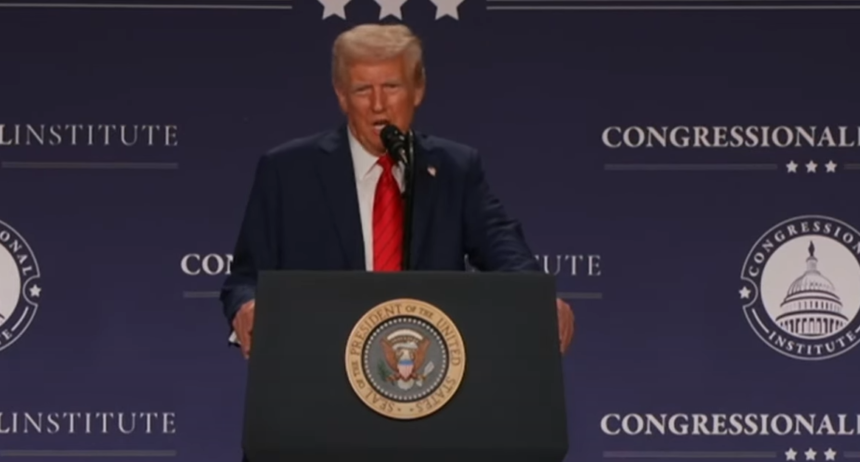Donald Trump’s use of the term “FAFO” has sparked significant political and diplomatic controversy in Colombia. The phrase, which stands for “F* Around and Find Out,”** has been widely used in American political discourse but has taken on new significance in international relations. Recently, Trump’s rhetoric and social media activity have drawn attention not just in the United States but also in Colombia, where political leaders and citizens are debating the implications of his statements.
The controversy began when Trump used “FAFO” in a speech discussing foreign policy and global governance, hinting at his administration’s stance on various international matters. While his comments were largely interpreted as a warning to adversaries, they also raised concerns among U.S. allies. In Colombia, where the relationship with the U.S. has been historically strong but sometimes strained, many political analysts and officials have begun questioning what this rhetoric means for diplomatic ties. The Colombian government has relied on U.S. economic aid, military assistance, and trade agreements, making any shift in tone from Washington a matter of serious concern.
For many Colombians, Trump’s direct and often aggressive language has been a topic of discussion long before the “FAFO” controversy. His approach to Latin America, particularly regarding trade policies, drug enforcement, and immigration, has shaped U.S.-Colombia relations for years. However, the use of such a blunt and confrontational phrase in an official or semi-official capacity raises new concerns about the future of diplomatic conversations between the two nations. Some critics argue that Trump’s rhetoric fuels a culture of hostility, making it harder for nations like Colombia to engage in constructive diplomatic discussions with the United States.
On the other hand, supporters of Trump’s approach in Colombia, particularly among certain conservative groups and business sectors, see the use of “FAFO” as a display of strength. They argue that Trump’s no-nonsense attitude towards foreign relations ensures that countries dealing with the United States understand the stakes clearly. Some politicians in Colombia believe that such an approach is beneficial in tackling issues like organized crime, trade negotiations, and military cooperation. They suggest that Colombia could adopt a similarly bold stance in its own geopolitical dealings, especially with neighboring countries.
The phrase “FAFO” has also found its way into social media debates, where Colombians from all political backgrounds are weighing in on its meaning and consequences. Some argue that Trump’s casual use of the term trivializes international diplomacy, reducing complex geopolitical issues to internet slang. Others believe that it reflects a growing shift in political communication, where direct and provocative language dominates public discourse. Regardless of perspective, it is evident that Trump’s words continue to have ripple effects well beyond the U.S., influencing political climates in nations like Colombia.
Beyond the political implications, linguists and cultural commentators have also taken an interest in how phrases like “FAFO” gain traction globally. While it originated in online communities and American pop culture, its adoption by figures like Trump gives it a new weight in diplomatic settings. In Colombia, where Spanish is the dominant language, the translation and cultural adaptation of such expressions add another layer to the discussion. Some have started using Spanish equivalents of “FAFO” in political conversations, while others are debating whether such language is appropriate for formal diplomatic discourse.
As the debate continues, many Colombians are watching closely to see how this controversy evolves. If Trump maintains or escalates his use of aggressive rhetoric, it could have further implications for U.S.-Colombia relations. Leaders in Bogotá will likely have to navigate these tensions carefully, balancing their alliance with the U.S. while responding to domestic concerns about political language and diplomacy. Whether “FAFO” remains just a viral phrase or becomes a symbol of a broader political shift, its impact on global conversations—including those in Colombia—is undeniable.






